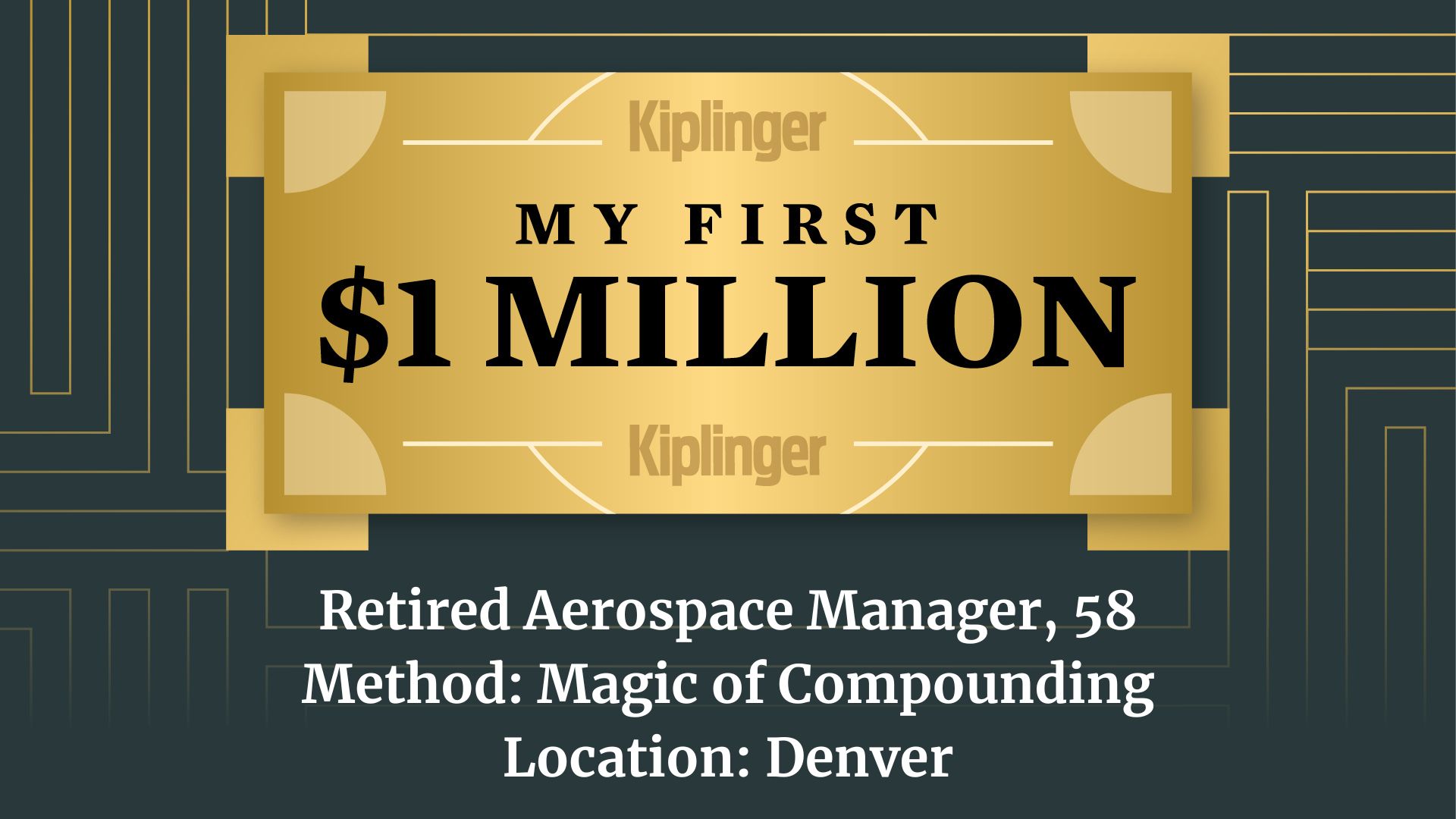I Wouldn't Use These Types of CD Accounts Right Now
The good news is you can earn over 4% on many CDs. However, there are three types of CDs I wouldn’t currently recommend.

Profit and prosper with the best of Kiplinger's advice on investing, taxes, retirement, personal finance and much more. Delivered daily. Enter your email in the box and click Sign Me Up.
You are now subscribed
Your newsletter sign-up was successful
Want to add more newsletters?

Delivered daily
Kiplinger Today
Profit and prosper with the best of Kiplinger's advice on investing, taxes, retirement, personal finance and much more delivered daily. Smart money moves start here.

Sent five days a week
Kiplinger A Step Ahead
Get practical help to make better financial decisions in your everyday life, from spending to savings on top deals.

Delivered daily
Kiplinger Closing Bell
Get today's biggest financial and investing headlines delivered to your inbox every day the U.S. stock market is open.

Sent twice a week
Kiplinger Adviser Intel
Financial pros across the country share best practices and fresh tactics to preserve and grow your wealth.

Delivered weekly
Kiplinger Tax Tips
Trim your federal and state tax bills with practical tax-planning and tax-cutting strategies.

Sent twice a week
Kiplinger Retirement Tips
Your twice-a-week guide to planning and enjoying a financially secure and richly rewarding retirement

Sent bimonthly.
Kiplinger Adviser Angle
Insights for advisers, wealth managers and other financial professionals.

Sent twice a week
Kiplinger Investing Weekly
Your twice-a-week roundup of promising stocks, funds, companies and industries you should consider, ones you should avoid, and why.

Sent weekly for six weeks
Kiplinger Invest for Retirement
Your step-by-step six-part series on how to invest for retirement, from devising a successful strategy to exactly which investments to choose.
In a world of not many sure things, a certificate of deposit is a rarity. You can store money in it, helping you earn a guaranteed return on investment.
And they’re perfect for short-term goals. Need to save for a vacation home, a dream trip or a side business you wanted to start up since retiring? A CD can help you reach them.
Best of all, you can earn rates above 4%. The latest CPI report shows inflation at 2.9%, which allows you to outpace inflation. At least, for now.
From just $107.88 $24.99 for Kiplinger Personal Finance
Become a smarter, better informed investor. Subscribe from just $107.88 $24.99, plus get up to 4 Special Issues

Sign up for Kiplinger’s Free Newsletters
Profit and prosper with the best of expert advice on investing, taxes, retirement, personal finance and more - straight to your e-mail.
Profit and prosper with the best of expert advice - straight to your e-mail.
Things to consider with a CD
CDs work best when you view a portion of your money as untouchable until you reach your goals. The reason for this is if you open a certificate of deposit and need to withdraw your money before your term expires, well, banks don’t like it.
In turn, you’ll have to pay an early termination fee since removing a portion of your money from a CD closes it. That penalty fee will likely offset the interest you earned. If you want more flexibility in savings, either consider a no-penalty CD or a high-yield savings account.
Even so, CDs are excellent saving vehicles. I’ve used them for three and six month savings goals, and they’ve done well for me.
With these things in mind, there are many CD types available. Here are three I would recommend against, at least for the time being.
1. Long-term CDs
Long-term CDs allow you to set money aside for three to five, even 10 years in some cases. When interest rates on savings are high, it’s a home run option for risk-averse savers.
CDs come with fixed interest rates, meaning the rate you lock in is the one you’ll have until the term expires.
However, they also work best if you already have an emergency fund of at least six months and are on your way to reaching your investment goals. Keep in mind that if you need to break open your CD early, the penalties for longer-term CDs are substantial, costing you six months to a year of earned interest.
Another thing to keep in mind is that we don't know how high prices will increase in the next few years. If they rise considerably, it can lower the returns you earn on a long-term CD.
And without the flexibility to switch (unless you're willing to pay the early termination fee), you might limit your potential earnings with this approach.
This is why shopping around for the best rates and terms is essential to finding your perfect CD match. You can use this Bankrate tool to compare and select your best choice quickly:
2. Callable CDs
A callable CD is unique in that your bank might decide to end the term before its maturity date. The most likely reason a bank calls it early is if interest rates lower, as they wouldn't want to be on the hook paying higher rates.
These CDs also have what’s known as a call protection term. During this term, your bank cannot call your CD to mature, giving you time to earn some money on it.
While these CDs can offer higher rates of return than a regular CD or even high-yield savings accounts, the decision on when to end it can be out of your hands. This can limit the returns you earn compared to a regular CD, where you won’t have to worry about your term ending prematurely.

3. CDs from traditional banks
Traditional banks might not offer as high a return as their online predecessors. To demonstrate, a 12-month CD with Huntington Bank earns you 0.50% APY. Meanwhile, a 12-month CD with Prime Alliance Bank earns you 4.15% APY.
The difference is that Prime Alliance doesn’t have physical locations. That means less overhead they have to pay. Therefore, while physical banks offer convenience, that comes at a cost.
Furthermore, if you don’t feel comfortable switching to an online bank, see if your local branch has any promotional rates. They usually do these on shorter-term CDs, allowing you to maximize savings in a quicker window.
The bottom line on choosing the best CDs
CDs are a solid choice for savers with a low-risk tolerance, offering a guaranteed return. Right now, many terms pay around 4%. However, if maximizing savings is your priority, you may want to avoid CDs with traditional banks, callable CDs and long-term CDs, as they often come with lower rates, withdrawal restrictions or added risk.
If you're saving for five or more years, investments have historically offered higher returns. Callable CDs and those from traditional banks can also limit your earnings — callable CDs may be redeemed before maturity, cutting interest short, while brick-and-mortar bank CDs often come with lower rates.
Related content
Profit and prosper with the best of Kiplinger's advice on investing, taxes, retirement, personal finance and much more. Delivered daily. Enter your email in the box and click Sign Me Up.

Sean is a veteran personal finance writer, with over 10 years of experience. He's written finance guides on insurance, savings, travel and more for CNET, Bankrate and GOBankingRates.
-
 Dow Leads in Mixed Session on Amgen Earnings: Stock Market Today
Dow Leads in Mixed Session on Amgen Earnings: Stock Market TodayThe rest of Wall Street struggled as Advanced Micro Devices earnings caused a chip-stock sell-off.
-
 How to Watch the 2026 Winter Olympics Without Overpaying
How to Watch the 2026 Winter Olympics Without OverpayingHere’s how to stream the 2026 Winter Olympics live, including low-cost viewing options, Peacock access and ways to catch your favorite athletes and events from anywhere.
-
 Here’s How to Stream the Super Bowl for Less
Here’s How to Stream the Super Bowl for LessWe'll show you the least expensive ways to stream football's biggest event.
-
 How to Watch the 2026 Winter Olympics Without Overpaying
How to Watch the 2026 Winter Olympics Without OverpayingHere’s how to stream the 2026 Winter Olympics live, including low-cost viewing options, Peacock access and ways to catch your favorite athletes and events from anywhere.
-
 Here’s How to Stream the Super Bowl for Less
Here’s How to Stream the Super Bowl for LessWe'll show you the least expensive ways to stream football's biggest event.
-
 The Cost of Leaving Your Money in a Low-Rate Account
The Cost of Leaving Your Money in a Low-Rate AccountWhy parking your cash in low-yield accounts could be costing you, and smarter alternatives that preserve liquidity while boosting returns.
-
 This Is How You Can Land a Job You'll Love
This Is How You Can Land a Job You'll Love"Work How You Are Wired" leads job seekers on a journey of self-discovery that could help them snag the job of their dreams.
-
 We Inherited $250K: I Want a Second Home, but My Wife Wants to Save for Our Kids' College.
We Inherited $250K: I Want a Second Home, but My Wife Wants to Save for Our Kids' College.He wants a vacation home, but she wants a 529 plan for the kids. Who's right? The experts weigh in.
-
 4 Psychological Tricks to Save More in 2026
4 Psychological Tricks to Save More in 2026Psychology and money are linked. Learn how you can use this to help you save more throughout 2026.
-
 Why Your Home Insurance Might Not Protect You If Someone Else Lives There
Why Your Home Insurance Might Not Protect You If Someone Else Lives ThereLetting a relative stay in a second home or inherited property can quietly change your insurance coverage and leave you exposed to costly liability claims.
-
 My First $1 Million: Retired (at 57) Aerospace Senior Manager, 58, Denver
My First $1 Million: Retired (at 57) Aerospace Senior Manager, 58, Denver"Making $1 million was never a goal, but maybe it should have been. I simply wanted to be debt-free and never worry about money."